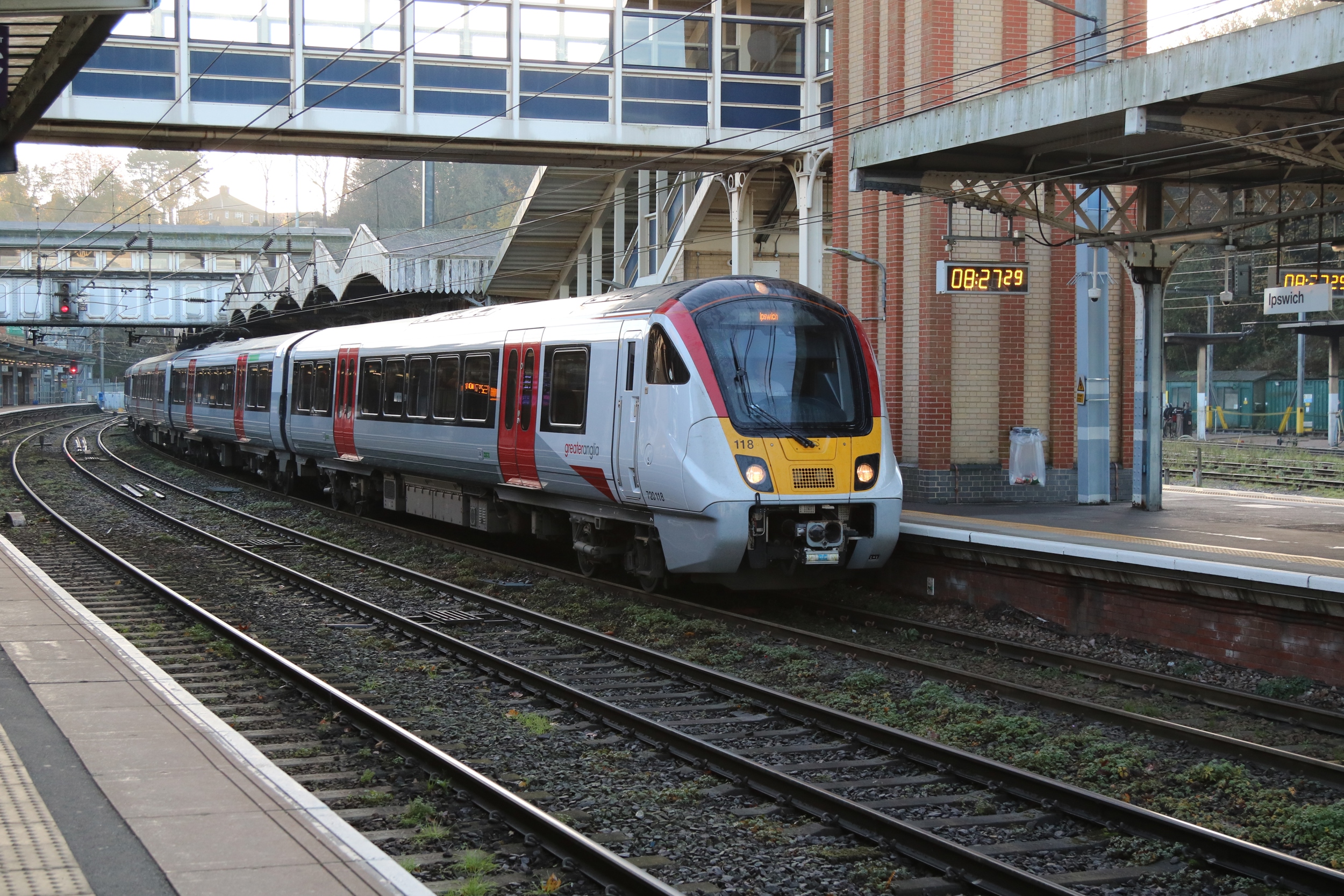
Christian Wolmar on Labour's first frantic weeks in office and why the new government isn't hanging around.

Christian Wolmar on Labour's first frantic weeks in office and why the new government isn't hanging around.
So, there is a plan. A cunning plan, but also a complicated one.
Remarkably, in the King’s Speech there were five bills related to transport, two of which solely concern railways. Why two bills? Because Labour and Transport Secretary Louise ‘move fast and fix things’ Haigh is in a hurry.
The reason for the haste is that rail ‘renationalisation’ has become totemic for Labour. The new government wants to show that it can change things quickly and improve the delivery of services, and (rather riskily) Sir Keir Starmer and his top team see railways as a key area where a real difference can be made quickly.
This explains the prominence given by Labour’s spin doctors to the railway bills in the King’s Speech, in terms of taking over the franchises and consequently improving the performance of the railways.
But Rome - or Great British Railways - cannot be built in a day. The legislative underpinning of the new organisation will be complex, and the process lengthy. There will probably have to be some of the dreaded consultation, which acts as a brake on every new policy introduced by governments.
The Bill to create GBR has not even been written yet and will clearly not see the light of day until very late on in this first session of Parliament, which will end in the autumn of 2025.
However, the key change as advertised in the manifesto is to bring passenger train operations back in-house by no longer franchising out services.
Labour recognised that this would also require legislation, since the Conservative’s Railways Act specified that public organisations could not bid for franchises or operate them except in cases of emergency - which is why four are currently being run by the Department for Transport’s Operator of Last Resort.
As I set out a couple of issues ago, the problem for the Transport Secretary and her team is that they do not, under current legislation, simply take over a franchise because it is up for review. There has to be a reason, such as financial issues or poor performance.
Hence the split into two bills, for Labour could not wait for the complicated legislation required to create GBR in order to ‘move fast’.
Therefore, the first Bill, called the Passenger Railway Services (Public Ownership) Bill, is relatively simple and will allow private operations to be taken over - probably by the Operator of Last Resort or perhaps a shadow version of Great British Railways (older readers will remember the Shadow Strategic Rail Authority).
I understand that ministers are hoping to get the Bill on the statute book by the autumn. And by golly, they are in a hurry. The government has set out a high-speed schedule for the Commons stages of the bill. The second reading took place on July 29 (just before recess), and the Third Reading, the last stage of the Commons process, is apparently scheduled for the first week in September when MPs return.
Even at this breakneck speed, it is difficult to see how the Bill will become law in time to deal with the first franchises coming up for consideration - Greater Anglia and West Midlands, both of which have scheduled reviews in September.
That’s because the Bill has to go through the Lords, where Rail Minister Lord Hendy will have his work cut out trying to prevent amendments that will delay the process, given that there is a Tory majority in the Lords, with wily old politicians on the opposite bench intent on slowing what they see as the sacrilege of reversing privatisation.
If those franchises coming up for review in September have to be waved through because the legislation is not ready, that will be a major disappointment for the party’s totemic new policy, especially as the Labour hordes will gather in Liverpool later that month for the annual conference.
That is the most urgent of the tasks facing the new transport ministerial team. But leaving aside non-rail issues, such as slicing back the roads programme to create a bit of leeway in the capital budget and help to fund HS2, and trying to reinvigorate bus services, there’s still no shortage of matters on the railways to sort out.
Top of the agenda has to be sorting out the industrial relations. Talks are indeed taking place, which (given that the Conservatives refused even to meet the unions) represents progress. Nevertheless, drivers’ union ASLEF, whose members have not had a pay rise for three years, is not going to roll over and accept a poor deal.
Financially, though, the railways have not recovered from the COVID pandemic. Whereas before COVID, railway services were generating around £2 billion more than they were costing to run, now they are costing £2bn.
While passenger numbers are inching back up to pre-pandemic levels, recent figures are distorted by the huge popularity of the Elizabeth line and by the increase in leisure passengers, whose fares do not make up for the loss of that traditional mainstay of railway finances - the season ticket holders, who are probably lost for ever given the preponderance of working from home. Any deal with the unions will have to reflect that reality.
While clearly a deal with the unions will improve performance and reliability, winning back some of the goodwill that has been lost by the obduracy of the previous regime, there has to be a focus on the other issues which have led to the deterioration of railway services.
Under the previous administration, the meetings between DfT officials and train operating companies who were performing badly had been scrapped.
These have now been restored, with both Avanti West Coast and TransPennine Express being called in to account for themselves.
Interestingly, my sources suggest that TPE was given the harder time, despite the fact (or maybe because of it) that the operations are currently being run by the government’s own Operator of Last Resort.
I understand that both meetings were ‘positive’ with joint presentations from Network Rail and operators, and that it was clear that most of the delays were not caused by external factors such as bad weather or major track issues, but rather by poor management, staff shortages and timetable conflicts. In other words, these problems are resolvable.
There is progress on other fronts, too. There is a widespread recognition that a long-term rolling stock strategy is essential - not least because the Conservatives have left the industry with five assembly factories for rolling stock, but with no consideration of their long-term viability. It is recognised that not all can survive, which means there are some very hard decisions to be made.
On a more positive note, the DfT has been told it must create a proper accounting system for the railways, taking into account both costs and revenue.
This was indeed promised by former Transport Secretary Mark Harper at the Bradshaw lecture early last year, but never implemented. Instead, the system by which costs were borne by the DfT while revenue went to HM Treasury was maintained, meaning that no sensible decisions on (say) revenue-raising marketing could be made.
Now, a new system whereby revenue and costs are considered together is to be implemented from April 1 next year.
The fundamental aim behind Labour’s strategy is bringing operations and infrastructure to work together. And there was perhaps a good sign when I took the last train of the day back from Derby to London recently. The service started late from Sheffield, because it was held to wait for a connection.
Now, it may be that this was common practice for that service, but it does represent the way that railways should be run. Anyway, I took it to be a sign that (just possibly) that railways are on the right track.
To read the rest of this column and Wolmar's column every fortnight, Subscribe today and never miss an issue of RAIL. With a Print + Digital subscription, you’ll get each issue delivered to your door for FREE (UK only). Plus, enjoy an exclusive monthly e-newsletter from the Editor, rewards, discounts and prizes, AND full access to the latest and previous issues via the app.
Login to continue reading
Or register with RAIL to keep up-to-date with the latest news, insight and opinion.


















Login to comment
Comments
No comments have been made yet.